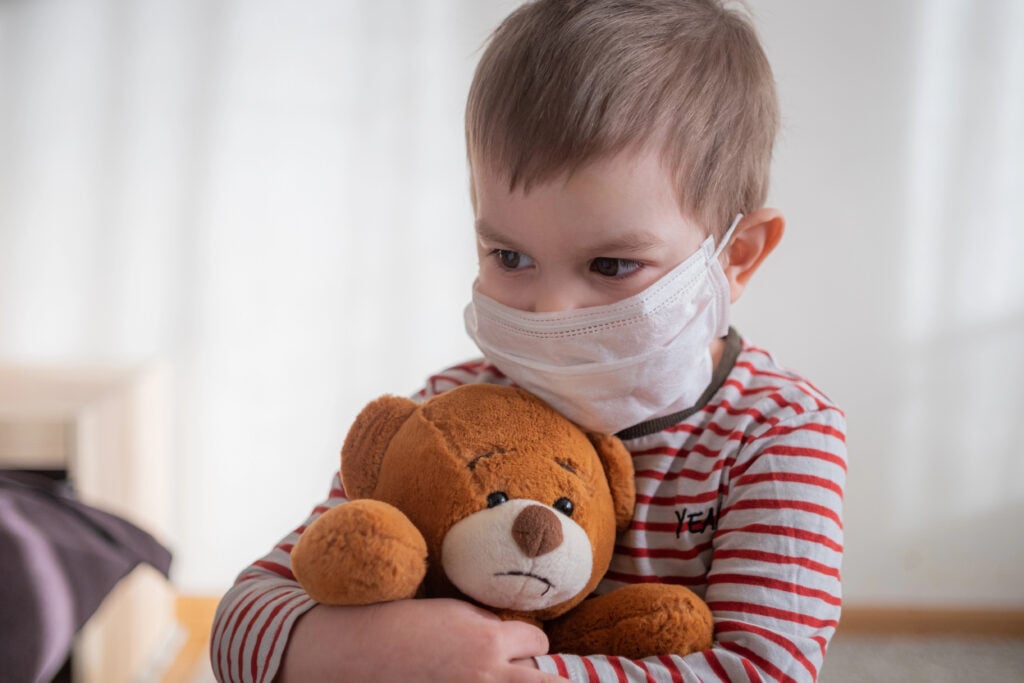
Childhood vaccinations have virtually eliminated some diseases and drastically reduced the prevalence and risk of others.
Ailments like measles, which were once treated as a standard part of childhood but which could have severe and lasting side effects, are now much rarer. However, the World Health Organization (WHO) warns that vaccination rates (for multiple diseases) are below the goal levels, and that this is increasing risks.
For most people, getting vaccinated offers significant protection, while others rely on herd immunity for their safety.
Over 14 Million Unvaccinated Infants

The latest data from UNICEF and WHO indicate that about 85% of infants globally have completed all three doses of the diphtheria, tetanus, and pertussis (DTP) vaccine, and an additional 4% have received at least one dose. These are numbers to celebrate, as children around the world gain protection against these serious illnesses.
However, that leaves around 20 million infants who are not fully protected against pertussis, diphtheria, and tetanus, and an estimated 14.3 million who have never received a single dose of any vaccines at all.
That puts the global vaccination rate about 4k short of the current goals.
We’re Seeing The Effects, Even In The U.S.
Measles and chicken pox are a few of those childhood diseases that have been virtually eradicated in the United States; they are also notable diseases that people write off as minor and harmless. Still, they are devastating or even deadly to a percentage of sufferers, and leave lifelong effects for many more.
Now measles is making a comeback. In 2023, the National Foundation for Infectious Diseases expressed concern about the rate of cases more than doubling:
“In 2000, measles was declared eliminated in the US; however, measles cases and outbreaks still occur every year in the US because measles is still commonly transmitted in many parts of the world. The Centers for Disease Control and Prevention (CDC) recently reported an increase in measles cases from 49 in 2021 to 121 in 2022, all among children who were not fully vaccinated, including outbreaks in Minnesota and Ohio.”
That was even before the outbreaks of 2024 and 2025. According to Healthline, the U.S. had already documented more than 1,300 cases by July 15, 2025. At that point, 164 cases (that’s about 1 in every 8) had required hospitalization.
Additionally, approximately 92% of these cases involved individuals who were either unvaccinated or had an unknown vaccination status.
This isn’t relegated to countries that lack healthcare infrastructure or where vaccines are inaccessible. It’s happening in the United States, where many people imagine such outbreaks to be a thing of the past.
Why Do We Worry About Unvaccinated Children?

Sometimes parents of unvaccinated children will say, “If your child is vaccinated, why are you worried about mine? Doesn’t the vaccine protect your child?”
The answer is twofold. First, we can care about the harm done to other people’s children. We can care that kids are at risk, even if our own are safe.
However, the more widespread issue is herd immunity. The DTP vaccine mentioned earlier is administered to children in three doses, at ages 2 months, 4 months, and 6 months. Before that first dose, a child is not protected, and pertussis, also known as whooping cough, is a terror to parents of newborns.
Even when a person is fully vaccinated against a given disease, that doesn’t necessarily mean complete immunity. Vaccines can be explained as teaching the body how to fight a specific infection, essentially training white blood cells to prepare for an attack.
People with compromised immune systems may not respond to vaccines in the same way, leaving them vulnerable. People undergoing chemotherapy or some other medical treatments can still be in danger. And, of course, children who are not yet old enough to complete a full vaccination series are at risk.
What Can Parents Do To Protect Our (And All) Children?
If you have questions or concerns about the safety of a vaccine or about the schedule, talk to your pediatrician and listen openly and honestly to the information they share.
Follow vaccine schedules unless your doctor recommends otherwise. If your child requires an altered vaccine schedule due to a medical reason, or if an allergy or other contraindication prevents them from receiving one or some routine immunizations, be sure to consult with your doctor about the best ways to keep them safe.
It’s a good plan to limit visitors during the newborn phase, and many parents do not allow visitors who aren’t up-to-date on their own vaccines.
We can also take steps to promote an understanding of science-based standards and ensure that we share accurate information about health matters.

